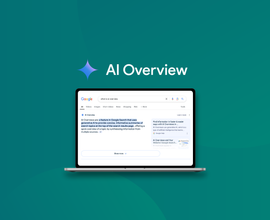The Stages of Marketing Growth Quiz: How to Assess your Organic Marketing Capabilities
Organic Marketing Maturity Quiz
Take Conductor's free online Organic Marketing Maturity Quiz to benchmark where your organization’s SEO program stands today and unlock new tactics to accelerate growth.
We'll cover topics such as for example how long it takes your team to publish new content, or to simply update a title tag.
The difference between three days and three months is an agile and highly cross-functional Organic Marketing team. It’s what separates high-growth from flat-growth companies and drives success.
Organic Marketing isn’t just driven by your SEO team, but also Content, Web and stakeholders across the organization - essentially anyone that touches your website. How you bring those different marketing operations and functions together is what determines your success. It’s about seamlessly aligning all of your teams so they can get more done – faster.
This is the key to growing your Organic Marketing program to the next level of marketing maturity.
What is Organic Marketing Maturity?
Organic Marketing Maturity is the combination of your people, processes, tools and metrics and how they come together to create strategy and execute initiatives. The more you invest in each of these areas, the greater the maturity of your Organic Marketing Program.
Your position in Conductor's Organic Marketing Maturity Model is determined by your company’s investment across these four pillars:
1. PEOPLE
Your people are the cornerstone of Organic Marketing success. Organic Marketing is a team sport and requires investment and collaboration across your SEO, Content and Web teams. These teams must facilitate and foster relationships with departments and stakeholders across the organization to gain support for their organic marketing efforts. Mature SEO practices are heavily dependent on the buy-in of multiple stakeholders and departments within their organizations.
2. PROCESS
Your processes are the workflows and systems used by Organic Marketing teams to execute successful SEO and content programs. These include how your teams work together to activate programs, implement changes and optimize content. They also include how teams communicate with stakeholders and gain approval for implementation. Processes should be well-documented, cross-functional, repeatable and reliable, and continuously improved over time.
3. TOOLS
Your tools are the Organic Marketing technologies used across your SEO, Content and Web teams to share data insights, measure performance and continuously optimize your organic presence. Leveraging an Organic Marketing platform can transform your data into a consistent, single source of truth for all members of your organization.
4. METRICS
Metrics are what and how you track, measure and report on your Organic Marketing success. These are the KPIs, analytics and data that help you measure your SEO and content impact, drive your strategy and take action. For many organizations, these are organic traffic, conversions, and revenue. Turn-key reporting is integral in demonstrating the value of SEO within an organization and gaining buy-in from key stakeholders.
Why is Organic Marketing Maturity Important?
Your Organic Marketing program is at the center of your digital strategy and is key to engaging your audience. Getting found online in organic search drives traffic to your site and ultimately increases growth, conversions and revenue.
But unlike other marketing channels, Organic Marketing is both an art and a science - and one that needs the right collaboration between your SEO, Content MarketingContent Marketing
Content marketing is a marketing discipline with the goal of increasing awareness and scope for products and brands in the desired target group with content published on the web and offline.
Learn more and Web Teams.
That’s why Conductor developed a comprehensive Organic Marketing Maturity Quiz to help you benchmark your program and identify key opportunities to accelerate outcomes.
We worked with thousands of organizations of many sizes, industries and maturity levels to develop a framework for organizations to benchmark themselves and find personalized opportunities for growth.
How to Assess Your Organic Marketing Growth
Wondering where you stand when it comes to your Organic Marketing Maturity? Take the Organic Marketing Maturity Quiz to understand your organization’s current stage, what that means, and what specific steps you can take to get to the next level.
When you take the Organic Marketing Maturity Quiz, you’ll get:
- A personalized assessment full of specific insights, current challenges and potential solutions.
- Informed opportunities for improvement and step-by-step recommendations on how to level up to the next stage.
But before you can grow your Organic Maturity, you first must dive deep into your organization’s current status to identify and diagnose areas for improvement and prescribe solutions for healthier growth.
To understand how Conductor’s Organic Marketing Maturity Model works as a benchmark, let’s dive into the methodology.
What Are the Stages of Organic Marketing Maturity?
From our experience working with thousands of customers, we have found that organizations generally fall into one of the five stages stages of marketing maturity below:
Stage 1: Conceptual
You have a high-level vision of what’s needed to shape your Organic Marketing program, but need more support and resources to fully get off the ground. That said, Organic Marketing may be seen as a tactic to implement rather than an integral part of the organization’s ability to deliver actionable insights, empower teams and connect with audiences. However, your organization is beginning to understand the opportunity organic marketing provides to accelerate inbound traffic, reach new customers and grow revenue.
Stage 2: Tactical
You have started to implement Organic Marketing as one of several tactics on a small scale, but you need more guidance and support to chart a more defined path to success. SEO may be viewed as a secondary method rather than an integral part of the organization’s ability to deliver actionable insights, empower teams and better serve its audiences. Your organization understands the value of Organic Marketing and the market share opportunity cost when compared to competitors, affiliates, and partners who invest in the organic channel.
Stage 3: Foundational
You have invested in organic in the short-term but need more support to build a long-term, in-house foundation for success. Your organization recognizes the value of Organic Marketing to scale up your business, accelerate inbound traffic and better engage with your audience. At this stage, organizations and leadership may find themselves at a crossroads: they understand the massive potential opportunity of Organic Marketing but are still quantifying the scale of opportunity and the in-house expertise needed to capture it.
Stage 4: Strategic
You are fully invested in Organic Marketing across the organization, with a dedicated team and developed processes, but have room to further advance your infrastructure and activation of cross-functional SEO insights. Your Organic Marketing programs are strong across all success pillars, including dedicated team resourcing across SEO, Content and Web teams, wide-spread buy-in from stakeholders, and well-codified processes. At this stage, you’ll need elevated Organic Marketing technology in place to serve different teams and stakeholders with different data needs.
Stage 5: Transformative
You have built an Organic Marketing program that is a central source of truth across the organization, with highly developed processes and systems that empower them to scale their digital growth and ROI. Organic Marketing serves as a critical foundation within your organization. At the highest level of Organic Marketing maturity, your organization has successfully achieved seamless collaboration between teams and agility in cross-functional processes, empowered by a fully integrated Organic Marketing platform technology.
Although most organizations typically fall into one of these five stages, it’s also possible to find, for instance, that your processes fall in one stage and metrics in another.
Drive Your Marketing Maturity to the Next Level
Once you assess your current stage, you can begin to take the necessary steps to evolve your Organic Marketing program so you can meet your goals.
For even more information on Organic Marketing Maturity, check out our Webinar The State of Search 2021: The Year of Organic Marketing Maturity.







